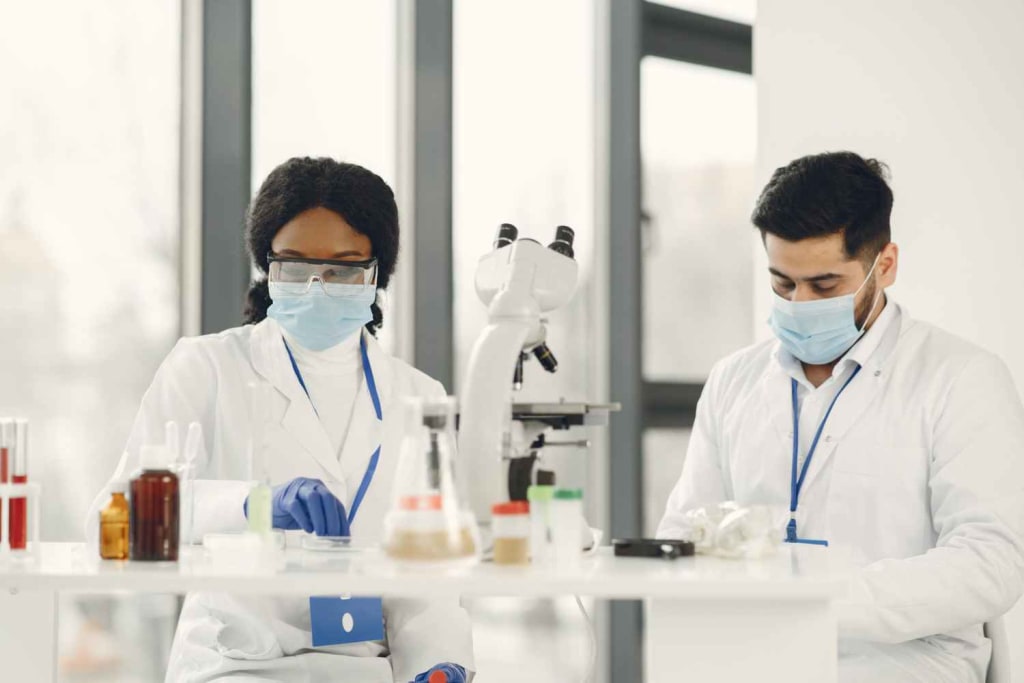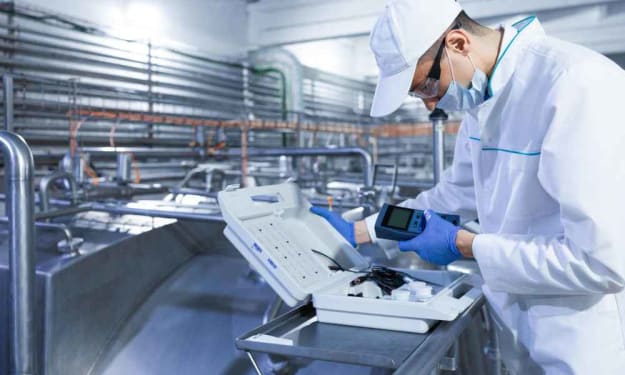Sustainable Practices in Laboratories in Mumbai: A Green Approach
Embracing Green Innovations in Mumbai Labs

Laboratories are essential for guaranteeing the safety and quality of a wide range of products, particularly in the food industry, in the vibrant metropolis of Mumbai, where industry and innovation flourish. Mumbai laboratories are implementing green methods to reduce their ecological footprint in response to the growing worries about the environment and the need for sustainable growth. This blog examines sustainable laboratory procedures in Mumbai, with a particular emphasis on microbiology labs and adherence to FSSAI guidelines.
The Importance of Sustainability in Laboratories
By definition, laboratories use a lot of resources, such as chemicals, water, and electricity. Hazardous waste in particular creates threats to human health and the environment. Using sustainable techniques reduces these hazards and encourages environmental responsibility in society. A greener and healthier world is the ultimate goal of sustainable practices in laboratories, which include everything from energy-efficient operations to trash reduction and recycling.
Energy Efficiency in Laboratories
Energy consumption is a major concern in laboratories, given the extensive use of equipment and HVAC (heating, ventilation, and air conditioning) systems. Laboratories in Mumbai are implementing several measures to enhance energy efficiency:
- Energy-Efficient Equipment: Replacing old, energy-intensive equipment with modern, energy-efficient alternatives can significantly reduce energy consumption. For instance, using LED lighting instead of traditional fluorescent lights, or energy-efficient freezers and incubators in microbiology labs.
- Optimizing HVAC Systems: Properly maintaining and upgrading HVAC systems can lead to substantial energy savings. Implementing variable air volume (VAV) systems and ensuring regular maintenance of air filters and ducts can enhance the efficiency of these systems.
- Automation and Smart Controls: Utilizing automation and smart controls for lighting, temperature, and equipment usage ensures that energy is used only when necessary. This not only reduces energy consumption but also extends the lifespan of the equipment.
Water Conservation Measures
Water is a critical resource in laboratories, especially in microbiology labs where sterilization and cleaning processes are frequent. Laboratories in Mumbai are adopting various water conservation measures:
- Efficient Sterilization Techniques: Utilizing advanced sterilization methods such as autoclaves with water-saving features and using alternative sterilization techniques like dry heat can reduce water usage.
- Recycling and Reusing Water: Implementing systems to recycle and reuse water for non-critical applications, such as cooling processes or irrigation, can significantly cut down water consumption.
- Regular Maintenance: Ensuring regular maintenance of plumbing systems to prevent leaks and installing low-flow fixtures can contribute to water conservation.
Waste Reduction and Management
An essential component of sustainable laboratory operations is waste management. Waste from laboratories can be classified as hazardous, non-hazardous, or electronic waste. It's crucial to implement efficient waste management and reduction measures.
- Minimizing Chemical Use: Adopting green chemistry principles, such as using less hazardous chemicals, reducing the quantity of chemicals used, and substituting toxic chemicals with safer alternatives, can significantly reduce hazardous waste generation.
- Segregation and Recycling: Proper segregation of waste into categories such as recyclable, non-recyclable, and hazardous waste is crucial. Laboratories should collaborate with certified waste management companies for the safe disposal and recycling of waste.
- E-Waste Management: With the rapid advancement in technology, managing electronic waste is vital. Laboratories should ensure the proper disposal and recycling of e-waste through authorized e-waste recyclers.
Sustainable Procurement and Supply Chain Management
Choosing goods and services that have a reduced environmental impact over the course of their lifecycle is a key component of sustainable buying. Mumbai's laboratories are concentrating on:
- Green Products: Choosing laboratory supplies and equipment that are environmentally friendly, such as biodegradable chemicals, recyclable packaging, and energy-efficient equipment.
- Local Sourcing: Procuring supplies from local vendors to reduce the carbon footprint associated with transportation and to support the local economy.
- Supplier Collaboration: Collaborating with suppliers who adhere to sustainable practices and are committed to reducing their environmental impact.
- Good Laboratory Practices (GLP): FSSAI mandates adherence to Good Laboratory Practices, which include measures for environmental protection and waste management.
- Sustainable Testing Methods: Encouraging the use of sustainable testing methods and technologies that minimize the use of hazardous chemicals and reduce environmental impact.
- Training and Awareness: FSSAI regulations stress the importance of training and awareness programs for laboratory personnel on sustainable practices and environmental responsibility.
Compliance with FSSAI Rules and Regulations
The Food Safety and Standards Authority of India (FSSAI) plays a pivotal role in ensuring food safety and quality in India. Laboratories involved in food testing must adhere to FSSAI rules and regulations, which also emphasize sustainable practices:
Conclusion
In today's environment, using sustainable laboratory techniques is not an option—rather, it is required. Mumbai's laboratories, especially the microbiology labs, are setting the standard by adopting eco-friendly procedures that comply with FSSAI guidelines. These actions not only lessen their negative effects on the environment but also foster a responsible and sustainable culture. Labs are creating a healthier environment and setting an example for others to follow as they innovate and use greener techniques.





Comments
There are no comments for this story
Be the first to respond and start the conversation.